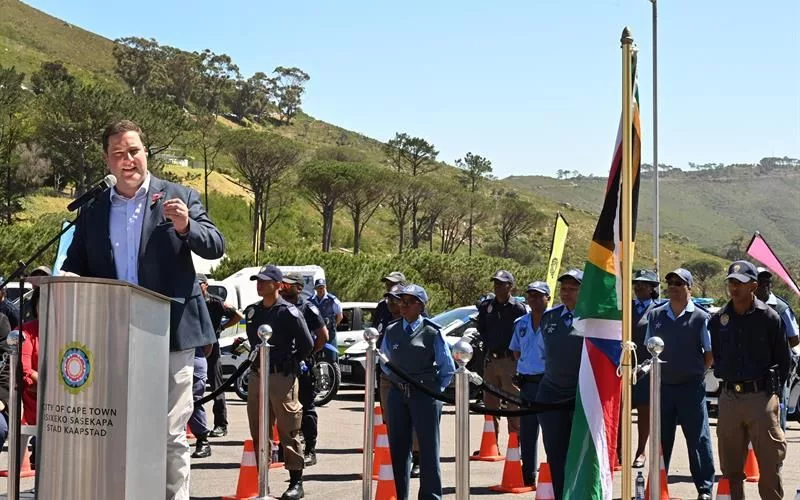A call centre project by Dr. Ruth Segomotsi Mompati District Municipality in South Africa’s North West Province is being scrutinized for allegedly using public funds earmarked for service delivery. The North West Provincial Legislature Portfolio Committee is set to host an oversight assembly to investigate the matter, highlighting the principles of accountability, responsiveness, and openness in South Africa’s governmental framework. The controversy raises questions about decision-making, vigilant supervision, and the obligation of governments to be held responsible for their actions.
What is the controversy surrounding Dr. Ruth Segomotsi Mompati District Municipality’s call centre project?
The R38 million call centre project of Dr. Ruth Segomotsi Mompati District Municipality in South Africa’s North West Province is under scrutiny for allegedly using public funds earmarked for service delivery. The North West Provincial Legislature Portfolio Committee is set to host an oversight assembly to investigate the matter, highlighting the principles of accountability, responsiveness, and openness in South Africa’s governmental framework. The controversy raises questions about decision-making, vigilant supervision, and the obligation of governments to be held responsible for their actions.
Spotlight on Accountability in South Africa’s North West Province
Transparency and accountability are under the microscope in South Africa’s North West Province. The Dr. Ruth Segomotsi Mompati District Municipality finds itself in the crosshairs of a financial anomaly linked to their call centre project.
The R38 million call centre is at the epicentre of this financial controversy. Drawn into focus by media coverage, the project is being criticised as an unnecessary duplication, allegedly bankrolled by public coffers earmarked for service delivery, a critical government function with a direct impact on citizens’ lives.
Role of the Provincial Legislature Portfolio Committee
The North West Provincial Legislature Portfolio Committee on Premier, Finance, Cooperative Governance, Human Settlements, and Traditional Affairs finds itself at the heart of this unfolding narrative. Directed by the Hon. Aaron Motswana, the committee is preparing to host an oversight assembly with the aforementioned municipality.
The pivotal gathering is set to include influential participants such as Mayor Cllr. Motseokae Maje, Municipal Manager Mr. Ronny Jonas, Councillors, and senior management of the district municipality. This meeting is anticipated to be a melting pot of leadership, responsibility, and possibly, a pursuit for clarification.
The assembly is planned for the 10th of November at 12:00 in the Legislature Committee Room 2, a venue that will serve as a forum for discussion and assessment. Media involvement is welcomed, with the committee providing contact information for those interested in attendance. Ms. Namhla Luhabe is the designated point of contact and is reachable on her mobile phone.
Implications and Expectations
As a democratic republic, South Africa’s governmental framework emphasizes accountability, responsiveness, and openness. The system is engineered to investigate, appraise, and amend when confronted with problems. The impending meeting between the North West Provincial Legislature Committee and the Dr. Ruth Segomotsi Mompati District Municipality exemplifies these principles in practice.
However, as the saga of the R38 million call centre develops, it’s impossible not to consider the wider ramifications of such events. Public finances are the backbone of service delivery, crucial in enabling health, education, and social benefits. Diversions from these sectors can have widespread consequences.
The situation prompts questions about decision-making within the municipal system. It urges South Africans, as well as global citizens, to reflect on the allocation, management, and application of public funds. It underscores the need for vigilant supervision, the role of the media in highlighting alleged improprieties, and the obligation of governments to be held responsible for their actions.
The choices and measures taken in this case will not only affect the immediate players involved, but could also have ripple effects, shaping public sentiment, trust in government, and the future course of service delivery in the district.
To conclude, the R38 million call centre controversy is more than a financial tale. It’s an exploration into governance, accountability, and the management of public funds. While we anticipate the results of the meeting and subsequent developments, one fact is clear: South Africa is paying attention.
1. What is the controversy surrounding Dr. Ruth Segomotsi Mompati District Municipality’s call centre project?
The R38 million call centre project of Dr. Ruth Segomotsi Mompati District Municipality in South Africa’s North West Province is under scrutiny for allegedly using public funds earmarked for service delivery. The North West Provincial Legislature Portfolio Committee is set to host an oversight assembly to investigate the matter, highlighting the principles of accountability, responsiveness, and openness in South Africa’s governmental framework.
2. What are the principles of accountability, responsiveness, and openness in South Africa’s governmental framework?
As a democratic republic, South Africa’s governmental framework emphasizes accountability, responsiveness, and openness. The system is engineered to investigate, appraise, and amend when confronted with problems. The principles of accountability, responsiveness, and openness serve as a basis for good governance in South Africa.
3. What is the role of the North West Provincial Legislature Portfolio Committee?
The North West Provincial Legislature Portfolio Committee on Premier, Finance, Cooperative Governance, Human Settlements, and Traditional Affairs is preparing to host an oversight assembly with the Dr. Ruth Segomotsi Mompati District Municipality to investigate the financial controversy surrounding the call centre project. The committee is tasked with upholding the principles of accountability, responsiveness, and openness in South Africa’s governmental framework.
4. Who will participate in the oversight assembly?
The oversight assembly is set to include influential participants such as Mayor Cllr. Motseokae Maje, Municipal Manager Mr. Ronny Jonas, Councillors, and senior management of the district municipality. The assembly is planned for the 10th of November at 12:00 in the Legislature Committee Room 2, and media involvement is welcomed.
5. What are the wider implications of this controversy?
The controversy surrounding the call centre project prompts questions about decision-making within the municipal system. It underscores the need for vigilant supervision, the role of the media in highlighting alleged improprieties, and the obligation of governments to be held responsible for their actions. Diversions from public funds earmarked for service delivery can have widespread consequences, affecting health, education, and social benefits in the district.
6. What is the significance of this controversy in South Africa?
The controversy surrounding the call centre project is an exploration into governance, accountability, and the management of public funds. The choices and measures taken in this case will not only affect the immediate players involved but could also have ripple effects, shaping public sentiment, trust in government, and the future course of service delivery in the district.








